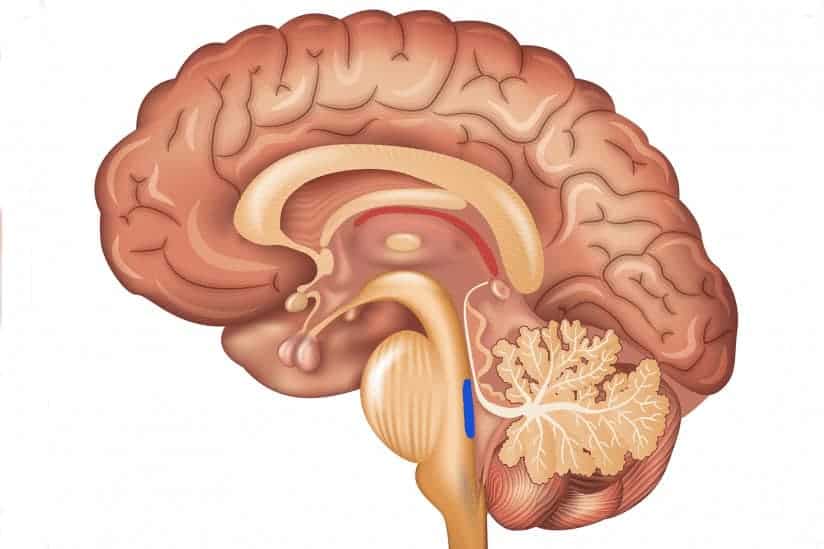A critical but vulnerable region in the brain appears to be the first place affected by late onset Alzheimer’s disease and may be more important for maintaining cognitive function in later life than previously appreciated, according to a new review of scientific literature.
The locus coeruleus is a small, bluish part of the brainstem that releases norepinephrine, the neurotransmitter responsible for regulating heart rate, attention, memory and cognition. Its cells, or neurons, send branch-like axons throughout much of the brain and help regulate blood vessel activity. Its high interconnectedness may make it more susceptible to the effects of toxins and infections compared to other brain regions, lead author Mara Mather said.
Mather, professor of gerontology at the USC Davis School of Gerontology, added that the locus coeruleus is the first brain region to show tau pathology — the slow-spreading tangles of protein that can later become telltale signs of Alzheimer’s. Though not everyone will get the disease, autopsy results indicate that most people have some initial indications of tau pathology in the locus coeruleus by early adulthood, she added.
The norepinephrine released from the locus coeruleus may contribute to preventing Alzheimer’s symptoms. Studies conducted with rats and mice have shown that norepinephrine helps protect neurons from factors that kill the cells and accelerate Alzheimer’s, such as inflammation and excessive stimulation from other neurotransmitters.
The importance of mental challenges
Norepinephrine is released when someone is engaged in or mentally challenged by an activity, whether it’s solving problems in the workplace, completing a word puzzle or playing a difficult piece of music.
“Education and engaging careers produce late-life ‘cognitive reserve,’ or effective brain performance, despite encroaching pathology,” said Mather, who holds a joint appointment as professor of psychology at the USC Dornsife College of Letters, Arts and Sciences. “Activation of the locus coeruleus-norepinephrine system by novelty and mental challenge throughout one’s life may contribute to cognitive reserve.”
“The Locus Coeruleus: Essential for Maintaining Cognitive Function and the Aging Brain” appears in Trends in Cognitive Sciences and was funded by the National Institutes of Health grant RO1AG025340. The study was co-authored by Professor Emeritus Carolyn Harley of the Memorial University of Newfoundland.

